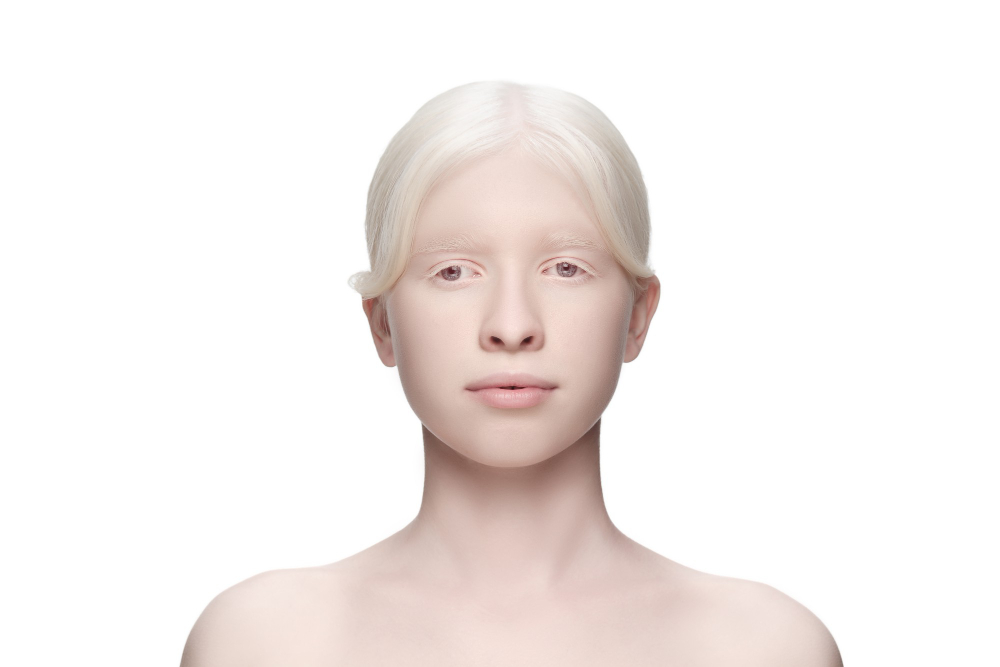Albinism is a genetic condition characterized by a lack of melanin, the pigment responsible for the color of the skin, hair, and eyes. Individuals with albinism may face certain challenges and have specific needs. Here are some precautions and considerations for people with albinism:
- Sun Protection:
- Albinism often leads to increased sensitivity to sunlight. Sun protection is crucial to prevent sunburn and reduce the risk of skin damage and skin cancer.
- Use sunscreen with a high SPF (sun protection factor) regularly, and reapply it every two hours or more frequently if swimming or sweating.
- Wear protective clothing such as long-sleeved shirts, pants, and wide-brimmed hats to shield the skin from direct sunlight.
- Eye Protection:
- Albinism can cause vision problems, such as nystagmus (involuntary eye movement), strabismus (crossed eyes), and photophobia (sensitivity to light).
- Wear sunglasses with 100% UV protection to shield the eyes from harmful sunlight.
- Consider using hats or visors to provide additional shade for the eyes.
- Regular Eye Exams:
- Schedule regular eye examinations with an ophthalmologist experienced in treating conditions related to albinism.
- Early detection and intervention can help manage vision problems and improve overall eye health.
- Assistive Devices:
- Depending on the severity of vision impairment, individuals with albinism may benefit from assistive devices such as magnifiers, screen readers, or large-print materials.
- Educational Support:
- Children with albinism may require special accommodations in the educational setting, such as enlarged print materials, preferential seating, or additional assistance.
- Social Support:
- Foster a supportive and inclusive environment to help individuals with albinism feel comfortable and accepted.
- Educate others about albinism to dispel myths and reduce stigma.
- Monitor Skin Health:
- Regularly check the skin for any signs of sun damage or unusual changes.
- Report any skin abnormalities or concerns to a healthcare professional.
- Hydration:
- Maintain proper hydration, especially during hot weather, to support overall health and well-being.
- Community Involvement:
- Connect with organizations and support groups for individuals with albinism. These groups can provide valuable resources, information, and a sense of community.
It's important to note that the specific needs and challenges associated with albinism can vary among individuals. Consulting with healthcare professionals, including dermatologists and ophthalmologists, can help tailor a care plan to meet the unique requirements of each person with albinism.
